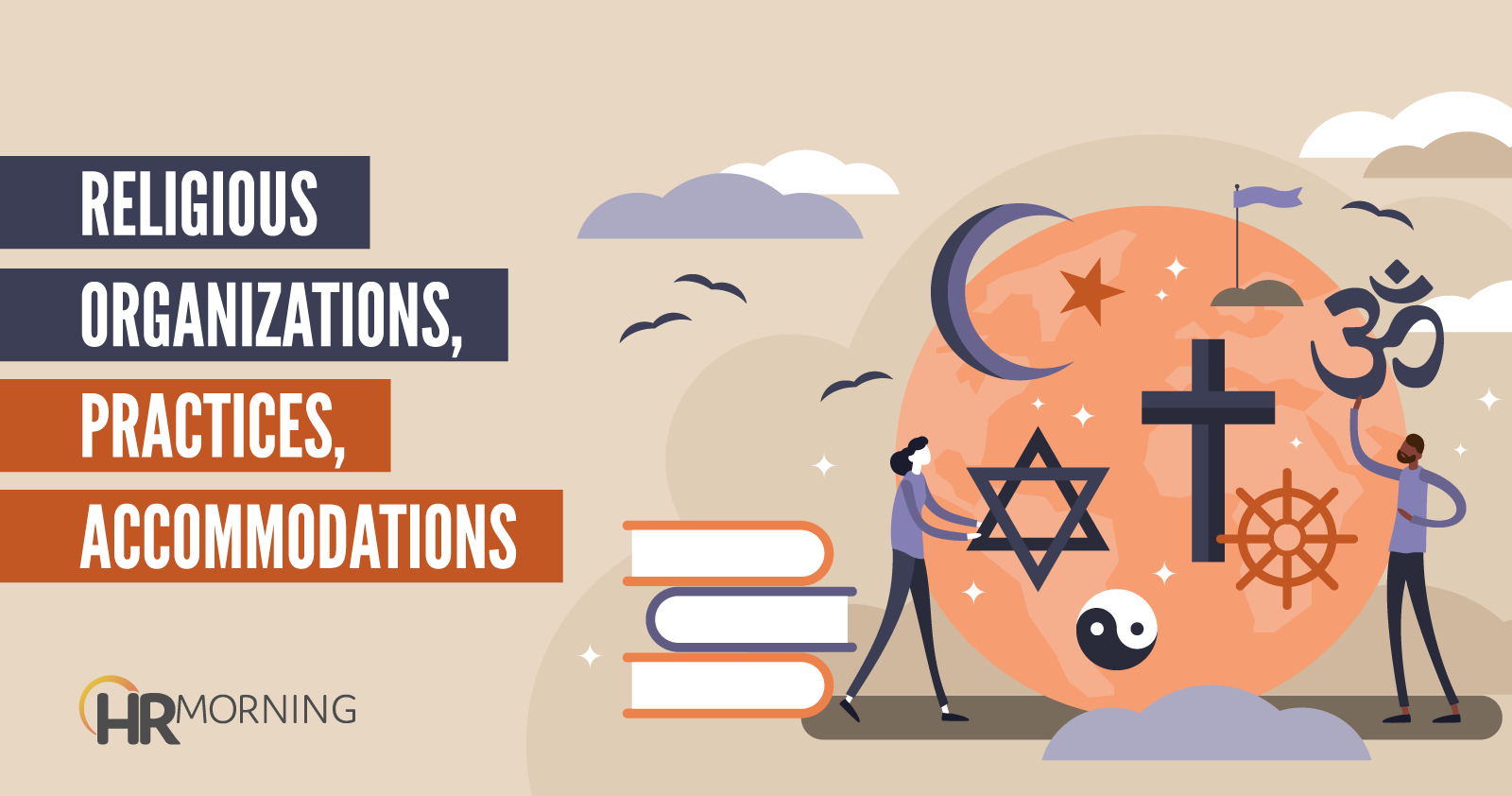Updates on religious bias enforcement

No employer wants to get into legal trouble for religious discrimination – and luckily, the EEOC has released updated guidance to help employers know the regs inside and out.
The updates include details about how to stay in compliance with the Civil Rights Act, as well as new legal protections offered to religious employers, which have been strengthened over the years.
Here’s a breakdown of the guidance.
Religious organizations
A major update from the EEOC makes certain Title VII exceptions for religious organizations – one being that religious employers may opt to only hire candidates of a certain religion. Secular companies aren’t permitted to do so.
It’s important to note that to be considered a religious organization, your “purpose and character” must be “primarily religious.” The EEOC will determine if an employer meets this standard on a case-by-case basis.
Beliefs & practices
The EEOC also said that religion is very broadly defined, with employees’ beliefs being protected if they’re in the person’s “own religious scheme of things.”
Another important distinction the EEOC made recently is that those without strong religious beliefs are also protected under Title VII. An employer can’t discriminate against someone who doesn’t possess religious beliefs or engage in religious practices.
Reasonable accommodations
As employers already know, a religious accommodation is an adjustment to the job that allows the employee to uphold their beliefs.
The accommodation’s “reasonableness” is unique to each employer/employee relationship, but common undue hardships include a high cost to the employer, disruption of daily operations, or the deprivation of a job opportunity for another qualified worker.
However, it’s important to note that simple resentment or jealousy from colleagues isn’t considered an undue hardship.
The EEOC gave examples of common reasonable accommodations:
- flexible scheduling, voluntary shift swapping
- lateral transfers or alteration of job duties, and
- modifying workplace policies and procedures.
Employers may have to make modifications to the dress code or allow prayer in the workplace, too.


